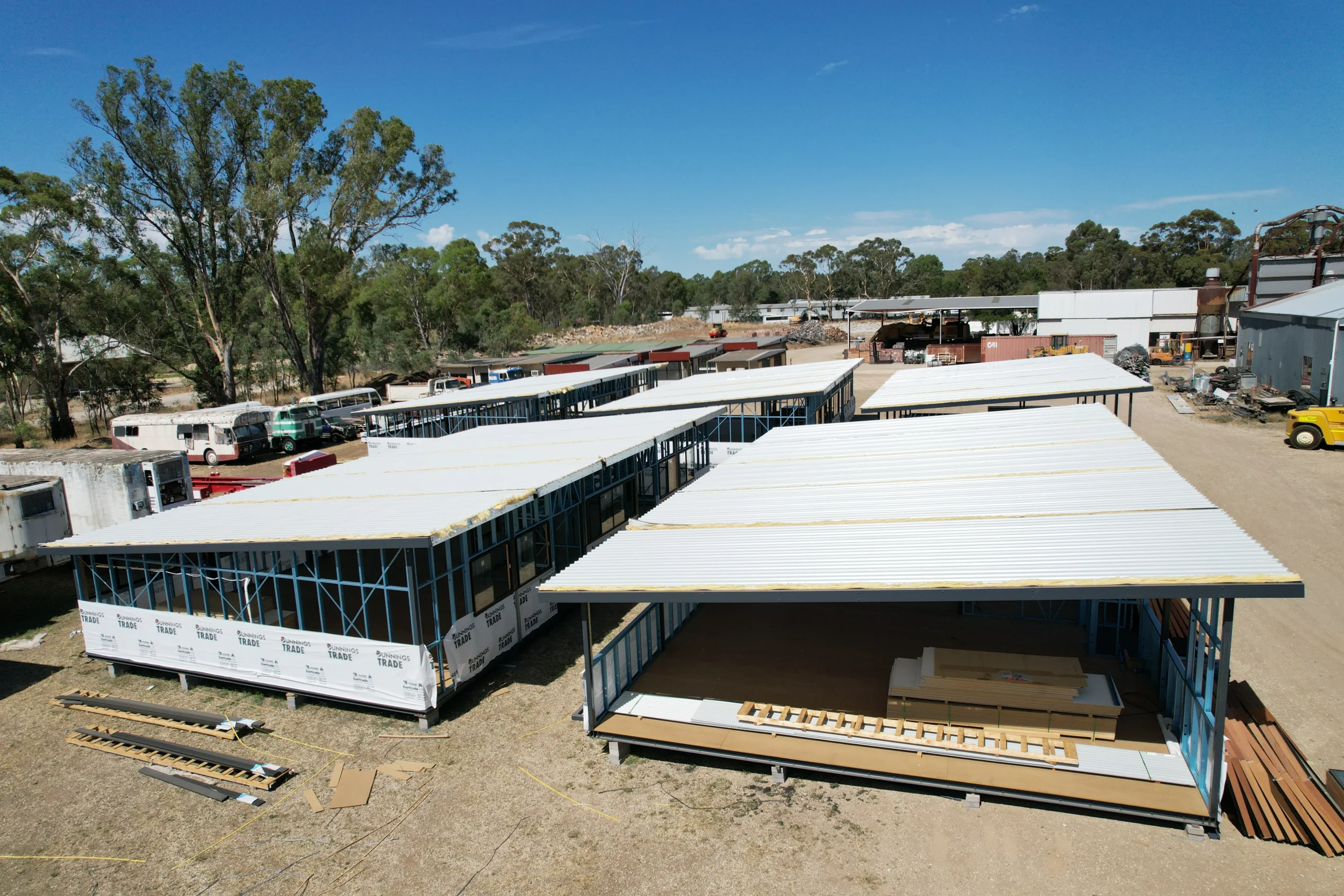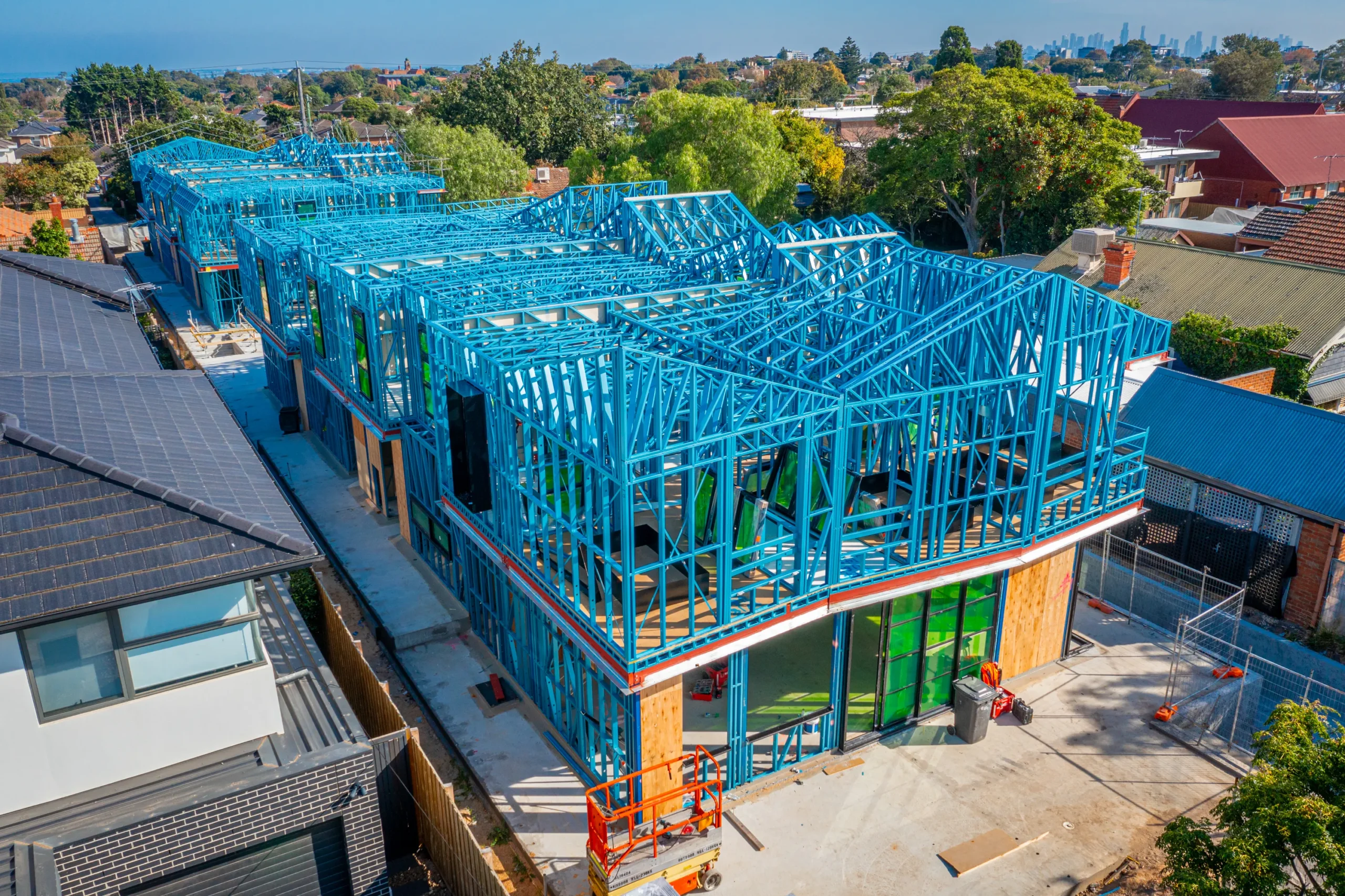


In any building project, the strength of the foundation and support structures determines how safe and durable the final outcome will be. One of the most critical elements in this process is the floor joist system. Floor joists act as the backbone of a building’s flooring, supporting loads, maintaining stability, and ensuring that the structure remains reliable for decades.
At CMC Steel Solutions, we specialise in designing, manufacturing, and supplying steel floor joists in Melbourne, providing builders and developers with framing systems that outperform traditional timber. In this guide, we’ll cover everything you need to know about floor joist design, span, and stability, and why choosing high-quality steel joists is the smarter choice for modern construction.
Floor joists are horizontal structural members that run between beams, walls, or foundations to support the flooring above. Together, they create a framework that distributes weight evenly, ensuring strength and stability throughout the structure.
Traditionally, floor joists were made of timber, but advances in technology have introduced light gauge steel floor joists that are stronger, lighter, and longer-lasting.
Understanding the floor joist components is essential for both builders and homeowners. A standard system includes:
Each component works together to form a floor joist system that ensures load-bearing strength, comfort underfoot, and overall stability.
When it comes to floor joist design, three factors are most important:
The joists must be strong enough to carry both dead loads (the weight of the building materials) and live loads (the weight of people, furniture, and equipment).
The span refers to the distance a joist can cover between supports without sagging. Longer spans require stronger materials and precise engineering.
Stability ensures that the flooring feels solid underfoot and resists vibrations.
Choosing steel joists over timber comes with several key benefits:
At CMC Steel Solutions, our in-house floor joist manufacturers use 3D BIM (Building Information Modelling) software to ensure accurate design and fabrication for every project.
Proper floor joist installation is critical to the performance of the structure. The process generally involves:
This streamlined approach saves time, reduces errors, and ensures consistency throughout the project.
When it comes to floor joist suppliers and manufacturers, not all are created equal. Partnering with an experienced provider ensures you get the highest quality product and service.
At CMC Steel Solutions, we:
This level of service sets us apart as one of Melbourne’s most reliable floor joist suppliers and manufacturers.
While timber may appear cheaper upfront, steel joists often provide better long-term value due to:
Builders who factor in the lifecycle of the project often find steel floor joists to be the most cost-effective option.
1. What is the best material for floor joists?
Steel is the best option for strength, durability, and resistance to termites and warping.
2. How long do steel floor joists last?
Steel floor joists can last for decades with minimal maintenance, making them more reliable than timber.
3. Can steel floor joists be used in residential homes?
Yes, they are ideal for both residential and commercial projects, especially in areas prone to termites or moisture.
4. Do steel floor joists require special installation techniques?
They follow similar installation methods as timber but often require less adjustment due to their precision manufacturing.
5. Are steel floor joists eco-friendly?
Yes, steel is 100% recyclable and supports sustainable construction practices.
The right floor joist design ensures strength, span, and stability for your building project. By choosing steel over timber, you gain superior durability, termite resistance, and long-term performance.
At CMC Steel Solutions, we are leading floor joist suppliers and manufacturers in Melbourne, offering engineered solutions that meet the highest standards. With our advanced 3D BIM technology, in-house manufacturing, and reliable delivery, we provide builders and developers with floor joist systems that are built to last.
Contact us today for a free quote and discover how our steel floor joist solutions can add strength and stability to your next project.





Are you looking for steel framing solutions? We at CMC Steel Solutions offer wide range of products for construction projects.
Connect with our team at 1300 285 566 or email us your doubts on info@cmcsteelsolutions.com.au for better response.